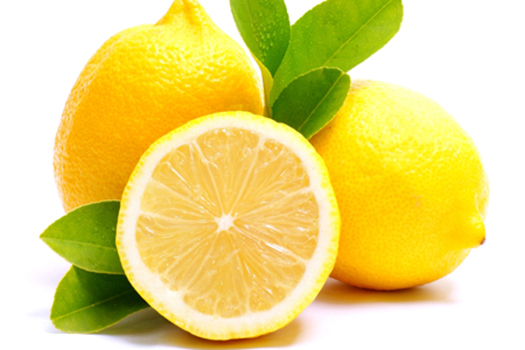Lemon Compounds May Fight Breast Cancer

A new study has shown for the first time how limonoids, natural compounds present in lemons and other citrus fruit, impede both ER+ and ER- breast cancer cell growth. This sheds new light on the importance of citrus fruit for breast cancer prevention and supports past studies which showed fruit consumption may lower breast cancer risk.
Limonoids show cytotoxic and anti-aromatase effects
For this study, 14 kilograms of dried lemon seeds were powdered and defatted. Nine different limonoids were extracted from the seeds. Seven showed significant cytotoxicity against ER+ breast cancer cells, while four showed cytotoxicity against ER- cells (decreasing growth/viability by as much as 44 percent). Each limonoid was also tested for its ability to induce programmed cell death of the cancer cells (via caspase-7 activation), and one of the most potent was found to be limonin glucoside—which is by far the most abundant limonoid in citrus juices.
The limonoids were also tested for their ability to inhibit aromatase, which is key in limiting the estrogen that ER+ cells can use for growth. All but one of the limonoids proved to be natural aromatase inhibitors, and again, limonin glucoside was at the forefront as the most potent of them all. Thus, limonoids are not only directly toxic to both ER+ and ER- breast cancer cells, but they also work to deprive ER+ cells of the estrogen needed for growth. Preventing breast cancer is not the only reason to consume citrus limonoids, though. In the lab, limonoids have shown cytotoxicity to colon cancer, pancreatic cancer, liver cancer, neuroblastoma, leukemia, and others. The opens an important question: how much citrus fruit must we consume for meaningful protection from cancer?
Citrus fruit for cancer prevention: how much is needed?
A recent case-control study out of Europe showed that consuming four or more 150-gram portions per week of citrus fruit decreased the risks of throat cancer by 58 percent, oral/pharyngeal cancer by 53 percent, stomach cancer by 31 percent, and colorectal cancer by 18 percent. This study did not find a protective effect of citrus against breast cancer, but a recent American study did show that women consuming about 75 grams daily of grapefruit (fruit or juice) saw a 22% reduction in breast cancer risk if they had never used hormone replacement therapy. It is noteworthy that the protective level of citrus consumption was nearly identical in both these studies (525-600 grams per week) and could be interpreted as a minimum intake level for meaningful cancer protection. However, it’s also important to know the best sources of limonoids if they are key to citrus fruit’s anti-cancer properties.
Sources of citrus limonoids: oranges are best
While the limonoids in the latest study above were taken from lemon seeds, they are also found in the peel, pulp and juice of all citrus fruits. Citrus juices contain approximately 90 to 300 mg per liter of limonoid glucosides (orange juice: 300 mg/l, grapefruit juice: 200 mg/l, lemon or lime juice: 90 mg/l). Citrus pulp and peel contain up to 500mg/kg of limonoids, so if you freshly squeeze your juice, be sure to include as much pulp as possible. Citrus seeds can contain up to two percent by weight of limonoids, with grapefruit seeds being the richest source.
Taken together, these recent studies suggest that women wanting to reduce breast cancer risk should consume at least 75 grams daily of citrus fruit or juice as part of a well-balanced, healthy lifestyle, and that further benefit may be obtained by concentrating on limonoid-rich orange and grapefruit as whole fruit, or pulp-rich juices.
Sources for this article include:
- http://www.ncbi.nlm.nih.gov/pubmed/23117440
- http://www.ncbi.nlm.nih.gov/pubmed/19856118
- http://www.ncbi.nlm.nih.gov/pubmed/18026192
- http://www.ncbi.nlm.nih.gov/pubmed/17892257
DISCLAIMER: All information on this website, including research articles, is for information purposes only and is not meant as a recommendation to buy or use any nutritional supplement, healthcare product or service of any type. Ethan Evers does not provide medical advice directly or through recommended or linked materials, articles etc. All matters regarding your health require medical supervision and advice from an appropriately licensed medical practitioner.





